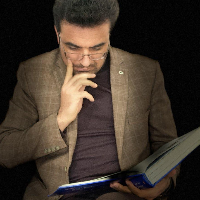Presentation of an Organizational Citizenship Model Based on Discourse Theory (Education Management in Basra Province)
The purpose of this research was to present a model of organizational citizenship behavior in the education sector of Babylonia Province, based on discourse theory.
This study is applied in nature and qualitative in methodology. The sample consisted of 12 experts including managers and employees from the Babylonia education sector. The qualitative analysis involved interviews, open coding, selective coding, and axial coding to extract themes and concepts. The result of this phase identified 16 axial codes and 87 open codes, with a frequency of 210 instances. These factors derived from the interviews were then explained through discourse theory and examinedat three levels.
The findings from discourse theory revealed that for some employees, organizational citizenship behavior is viewed almost as a taboo, seen as a means to enhance further activity but perceived negatively. For others, it is considered a natural part of any organization, and finally, some other employees see organizational citizenship behavior as an organizational necessity, which, when increasingly supported by managers, becomes a widespread practice.
The more the organizational environment is friendly, the easier it will be to exhibit organizational citizenship behavior, and the existence of a culture of collaboration and togetherness will facilitate this type of behavior.
-
Identifying the Dimensions and Designing the Management Model of Knowledge Hiding Using Metacombination Approach
Abbas Ghaedamini Harouni *, De Cheshmeh, Ghulam Reza Maleki Farsani, Elahe Musharraf Ghahfarakhi, Somayeh Shah Bandari Guchani
Journal of Knowledge Retrieval and Semantic Systems, -
The impact of organizational culture on deviant behaviors in the workplace through work-family conflict and personality traits (case study: Isfahan Islamic Azad University (Khorasgan))
Abbas Ghaedamini Harouni, Reza Ebrahimzadeh Dastjerdi *, Dah Cheshmeh
Irainian Journal of Culture in The Islamic University,



